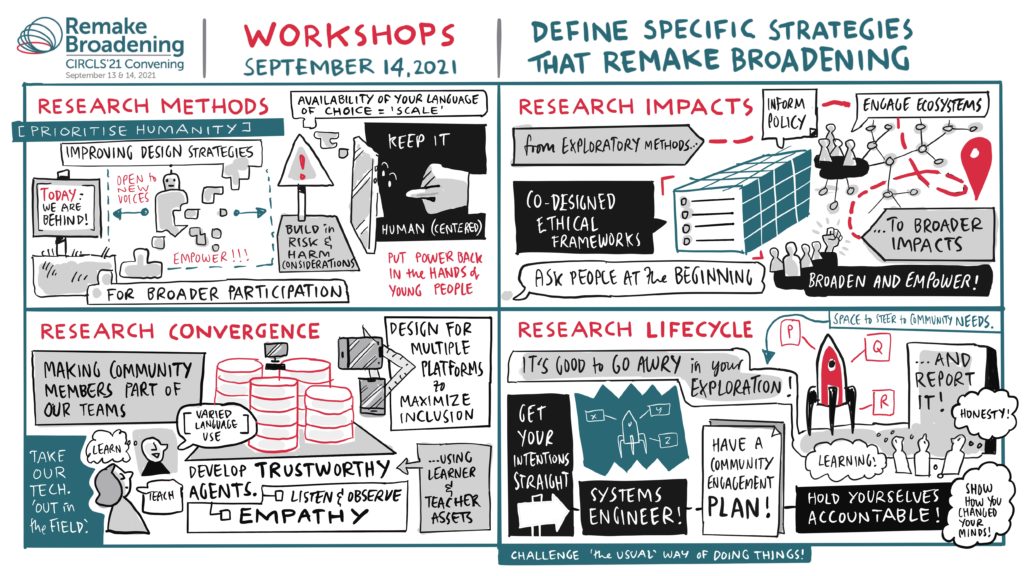
The CIRCLS community prioritized committing to and enabling these overall strategies, which inform the specific recommendations on other pages. (Note: although there are both four overall strategies and four recommendations, a one-to-one mapping is not intended).
- Redistributing power to those impacted by changes in teaching and learning.
For example, involving students in determining what and how an AI agent could help them and involving teachers in what “transparency” of AI algorithms means to them. - Shifting metaphors from broadening towards empowering.
“Broadening” has roots in technology transfer (and multi-phased scaling from research labs to widespread use). “Empowering,” on the other hand, has roots in social activism, and more clearly recognizes, for example, that capacity building, community building, and growing networks matters. - Aligning exploratory research to the scale and context of disparities.
For example, how to balance a portfolio across promising yet expensive, clunky technologies vs. scale-ready and highly improvable technologies. - Increasing accountability to equity goals.
Researchers have a great deal of experience creating data collection instruments to measure how effective our interventions are at achieving certain outcomes such as learning disciplinary knowledge or changing attitudes and interests. We need to use those same skills to ensure that our interventions and our own practices reflect the ethics and values of equity and justice for those involved in our research.
In a series of workshops, participants discussed specific strategies that remake broadening in research methods, research impacts, research convergence, and research lifecycle.

Next page: Preparing Researchers
